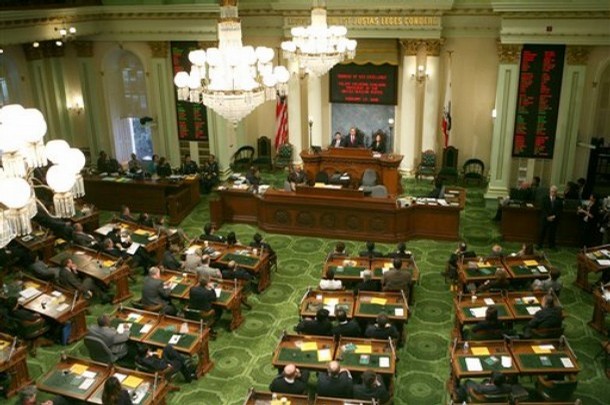In the drug rehab community, all eyes are on California as a series of bills making their way through the state legislature. Officials ostensibly passed these bills were to address mental and behavioral health care in the state. However, some policy experts worry that the bills will actually have a negative impact on access to drug rehabilitation resources. In particular, bill AB 2403 may significantly change the distribution of luxury drug rehab facilities in the state.
What do Bills Propose for California Drug Rehabs?
The four California bills — AB 2403, SB 1283, AB 2255, and AB 2772 — were introduced by legislators from wealthy communities such as Malibu. The bills would affect treatment providers across the state of California. In particular, AB 2403 would remove treatment centers’ exemption from local zoning laws. This bill, would transfer power from the state to local governments. As a result of the legislation, individual cities could vote to remove treatment facilities from their community. If AB 2403 passes, drug rehab facilities would no longer be covered by state protection from the Americans with Disabilities Act (ADA) or the Fair Housing Act (FHA).
Additionally, the bill would prevent two facilities from being placed within 300 feet of one another. This provision was designed to avoid “over-concentration” of treatment facilities in a particular geographic area. Current state law allows treatment providers to purchase entire blocks of homes. As long as six or fewer people live in each of the homes, they are not considered businesses. This allows entrepreneurs to create large networks of sober living facilities that may be concentrated in a single residential area.
Bills to Reduce Unscrupulous California Drug Rehabs
The bills’ proponents, including the state representatives from coastal communities who introduced the bills. It argues, that this will cut down on the number of “bad” or unscrupulous rehab facilities that are operating in California’s cities. Proponents of the bill feel that it makes sense for individual communities to have input on whether a treatment facility should be allowed to open. This may allow the best drug rehab facilities to proliferate while preventing bad facilities from staying in business. Furthermore, they argue that certain areas have an overconcentration of drug rehab facilities. The bill would correct this imbalance and prevent facilities from operating in close proximity to one another.
It is unclear whether or how the proposed legislation would hurt rehab facilities. It may be the case that luxury drug rehab facilities in posh settings may be most affected. These are the types of facilities that typically have the financial resources to open up shop in high-rent areas such as Malibu. Many, use funding for luxury amenities and an exclusive location, rather than higher quality treatment for patients. Thus, it is possible that the bills will increase opportunity for the best drug rehabs to provide individualized mental health assessment, unique treatment protocols, and state-of-the-art medical care.
Criticism of the Proposed Legislation
Critics of AB 2403 and the associated bills argue that the proposed legislation creates a serious civil rights crisis for the state. People struggling with drug or alcohol addiction are protected by the Americans with Disabilities Act (ADA) at the federal level. The bill’s critics claim that it takes unfair aim at a vulnerable minority group that cannot adequately protect themselves from the majority group who do not want a sober living house or treatment facility in their neighborhood.
Those against the bill say it represents an ongoing fight with affluent communities who take a “not in my backyard” approach to drug rehab facilities. They believe that the members of wealthy communities are concerned about property values, crime, and the aesthetics of allowing treatment facilities in their residential areas. Additionally, the provision preventing an “overconcentration” of treatment centers may violate the Fair Housing Act, which prevents housing discrimination on the basis of race, disability, or religion.
Adequate Medical Treatment is not Emotional Support
The California bills come at a time when there are a large number of overcrowded drug treatment facilities across the nation. The ongoing opioid epidemic has left many drug treatment facilities overwhelmed and unable to deliver the adequate or individualized treatments patients require to succeed. At the same time, some unscrupulous providers have opened up shop; charging insurances companies exuberant fees while providing subpar services to people in need. These drug treatment centers advertise beautiful locations and luxury services without the needed therapeutical value. They lack the appropriate medical supervision or the critical mental health assessment and support. These failed attempts to provide an effective option for drug abusers leads to immediate relapse and soaring overdose cases. There is an urgent need for greater access to high-quality individualized drug treatment programs that have been proven to work.














